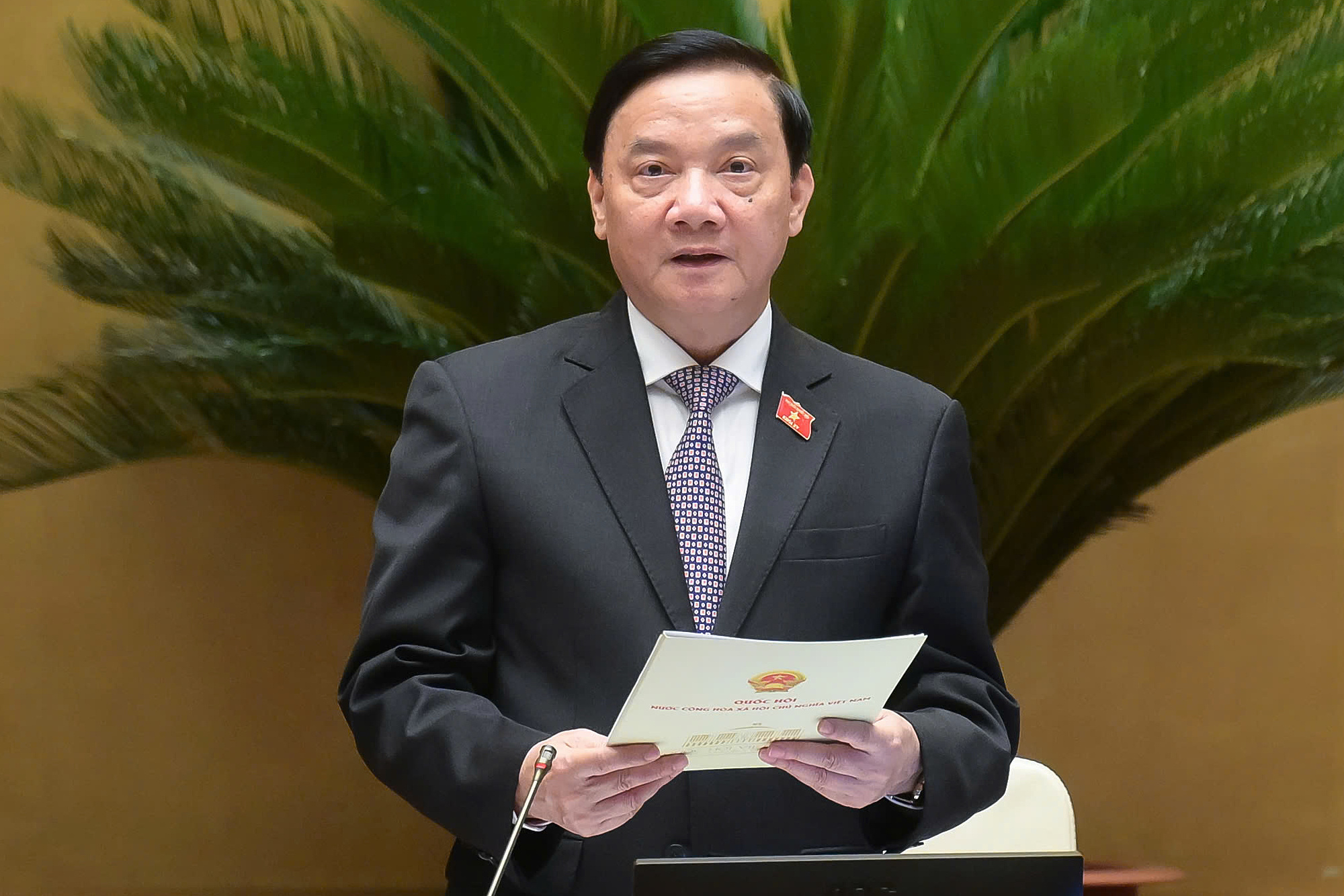On 23/6, the National Assembly discussed a draft resolution on the mechanism for resolving difficulties and obstacles arising from legal regulations. National Assembly Vice Chairman Nguyen Khac Dinh said that allowing the government to temporarily issue regulations different from existing laws and resolutions is a concrete step in implementing Resolution 66 of the Politburo on innovating legislative work. Granting this power to the government aims to remove bottlenecks and avoid stagnation in direction and administration, especially after the merging of ministries and provinces.
According to Mr. Dinh, after the administrative restructuring, the government reviewed and identified over 7,000 documents requiring adjustments. The transition to the two-tiered local government model alone necessitates revisions to over 19,000 documents, including over 200 laws, resolutions, and ordinances. "In total, there could be over 20,000 documents, while the National Assembly and its Standing Committee cannot promptly address all arising issues," he said.
However, Mr. Dinh emphasized that new regulations issued by the government must be "better than the old ones," not create additional burdens, not infringe upon human rights and citizens' rights, and not violate constitutional principles. These resolutions must also be subject to strict supervision, linked to the government's accountability to the National Assembly.
 |
National Assembly Vice Chairman Nguyen Khac Dinh. Photo: National Assembly Portal |
National Assembly Vice Chairman Nguyen Khac Dinh. Photo: National Assembly Portal
Supporting the authorization, delegate Ha Si Dong (former Chairman of the Quang Tri Provincial People's Committee) argued that delays in amending laws have hindered public investment and business activities. He suggested that the draft resolution should clearly define the authority of each level and prevent the emergence of a "favoritism" mechanism.
Delegate Nguyen Thi Suu (Deputy Head of the Thua Thien Hue Provincial National Assembly Delegation) emphasized that all new regulations must be subject to impact assessments, not impose unreasonable compliance costs, not introduce cumbersome procedures, and be easily accessible and transparent for citizens and businesses to understand their rights and obligations.
Delegate Nguyen Anh Tri argued that current legislative work is slow and lacks practicality. He proposed innovating the law-making process by increasing discussion time, expanding forums, and inviting experienced experts to contribute from the outset.
Concluding the session, Minister of Justice Nguyen Hai Ninh said the government is developing a plan for implementation immediately after the resolution is passed. Ministries, sectors, and localities must comprehensively review their areas of responsibility and report to the government by 30/7.
Mr. Ninh said the issuance of resolutions changing legal regulations will be carefully reviewed, not only by government agencies but also by an independent appraisal council comprising representatives from the National Assembly and the Vietnam Fatherland Front. Sensitive issues related to national defense, security, and foreign affairs will require consultation with competent authorities.
The National Assembly is expected to vote on the resolution on 24/6.
Son Ha












